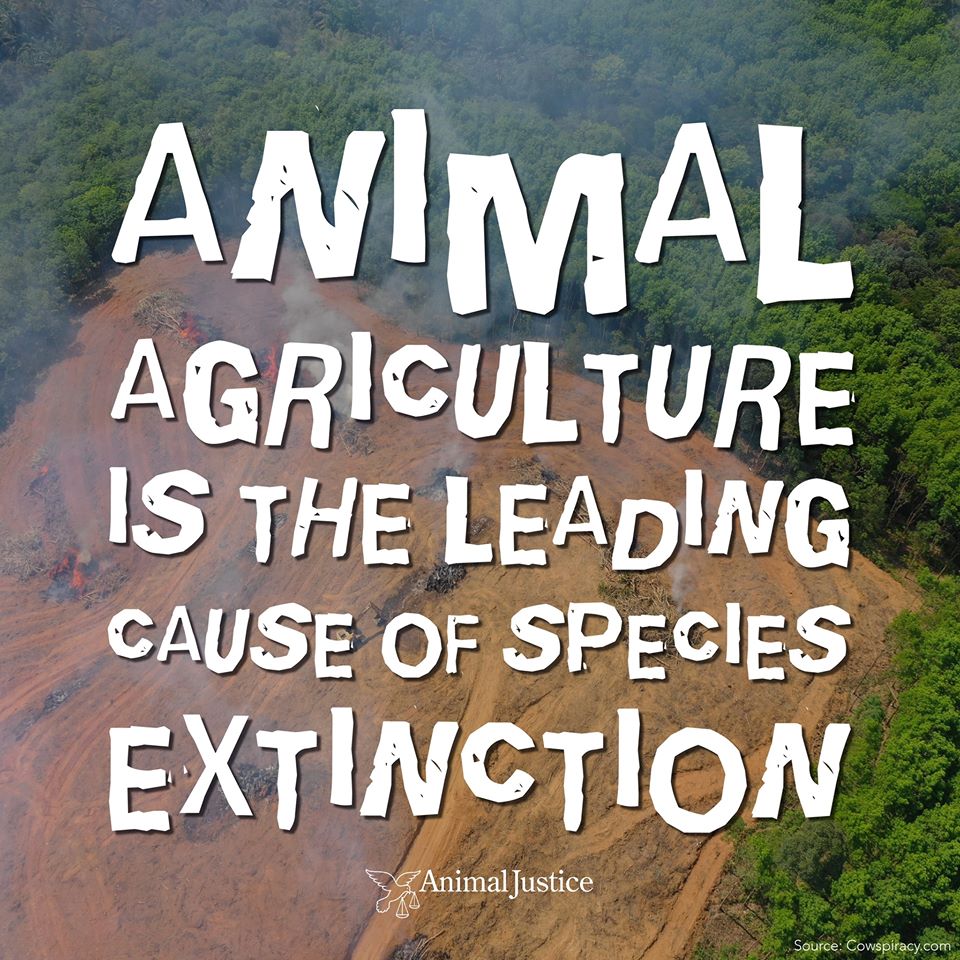Protesters say meat production hurting animals and environment
September 30, 2013 Dave Mabell dmabell@lethbridgeherald.com
Canadians’ food choices not only cause pain and suffering for countless animals, but they’re also wrecking havoc on the environment. That’s the message presented Sunday in Lethbridge and communities across the nation by activists who claim heavy dependence on meat is hurting Canadians’ health as well. Fortunately, according to Lethbridge event organizer Anita Virginillo, more Canadians are turning to vegan or vegetarian diets. More restaurants are also offering meat-free alternatives, she says, and now there are many healthier choices on supermarket shelves. “I’m a farm girl,” Virginillo says.
But the meat industry today bears little resemblance to the farm her parents ran, or to the idyllic image some Canadians may have of cattle living out their days on the ranch. It’s a far cry from the petting zoo. “The factory farm” has taken over, she says, each confining thousands of livestock in pens until they’re loaded up for slaughter.
The massive amount of manure, urine and excreted chemicals and hormones from so many feedlots continues to contaminate Alberta’s land, water and air, she says. Proximity to “Feedlot Alley” has also made communities like Picture Butte unbearable for some people with allergic reactions.
At the same time, Virginillo said in an interview, southern Alberta has become one of Canada’s hot spots for gastro-intestinal illnesses. The repeated use of hormones to promote animals’ speedy weight gain is one reason why, she contends. What’s more, she says, they’re perpetually confined in small spaces – six to eight chickens in a “battery cage.” She first saw their distress, Virginillo says, when she worked in a processing plant in southern Manitoba.
Production hogs are no better off, she says. Females are confined to a “gestation crate,” kept in the dark with nothing to do but eat. “They can’t even turn around,” until it’s their turn for the pork plant.
Even though a meat-based diet may have repercussions, Virginillo contends there’s absolutely no justification for how the animals are factory-raised. “What we’re trying to do is raise awareness of how they’re treated. It’s horrendous.”
Canadians recognize animals we raise and send to slaughter – horses, cattle, pigs – are mammals that experience pain and fear just as they do, she adds. “They’re no different in that respect than humans.”
Virginillo says the new group, Lethbridge Animal Rights Effort, will continue its awareness campaign through the year. Participants were surprised by the waves and honks of support they received on their first appearance, she adds.
Longer term, she says North Americans may be forced to reduce their use of meat, however it’s produced. With so much water, grain, energy and labour needed to produce a cut of beef, for example, those resources could be use to grow so much more vegetable protein. While the world’s population continues to grow, climate change may acerbate shortages of food and water. “This is simply not sustainable.”
Canada Slaughtered 834 Million Animals in 2019
May 13, 2020 Animal Justice https://www.animaljustice.ca/blog/canada-slaughtered-834-million-animals-in-2019
The Canadian meat industry is slaughtering more animals for food than ever before, according to government slaughter statistics analyzed by Animal Justice. In 2019, over 833 million land animals were killed at the hands of the meat industry—up drastically from 750 million in 2015.
Up from 819 million in 2018, 800 million in 2017, 771 million in 2016, and 750 million in 2015. Source: Canadian agri-food sector
Comment: What an abominable portrait of Canadian society. It seems that our humanity has ceased to exist.
Read more on our Nature/Human Impact & Factory Farming pages
It's a message that can no longer be ignored: killing animals is killing the planet !!
Meat production is a key driver of global wildlife extinctions and the climate crisis.